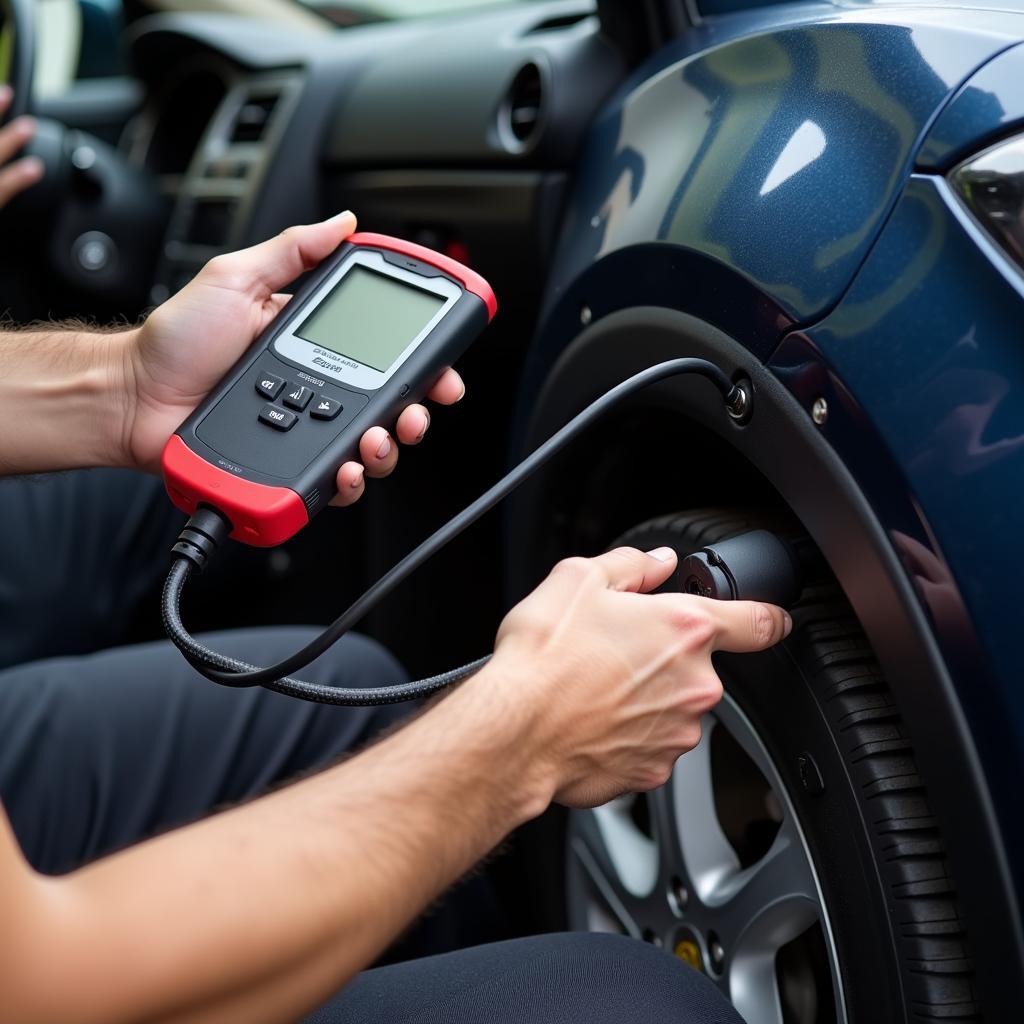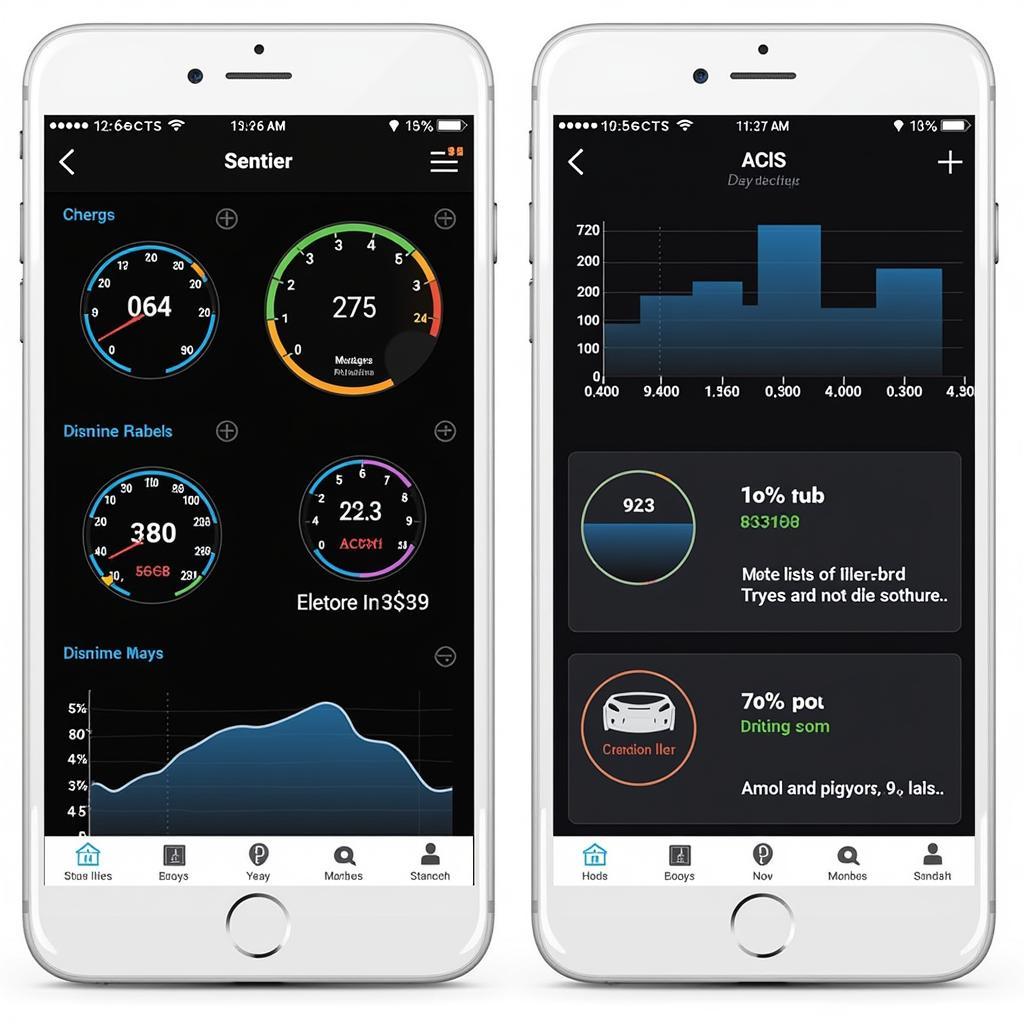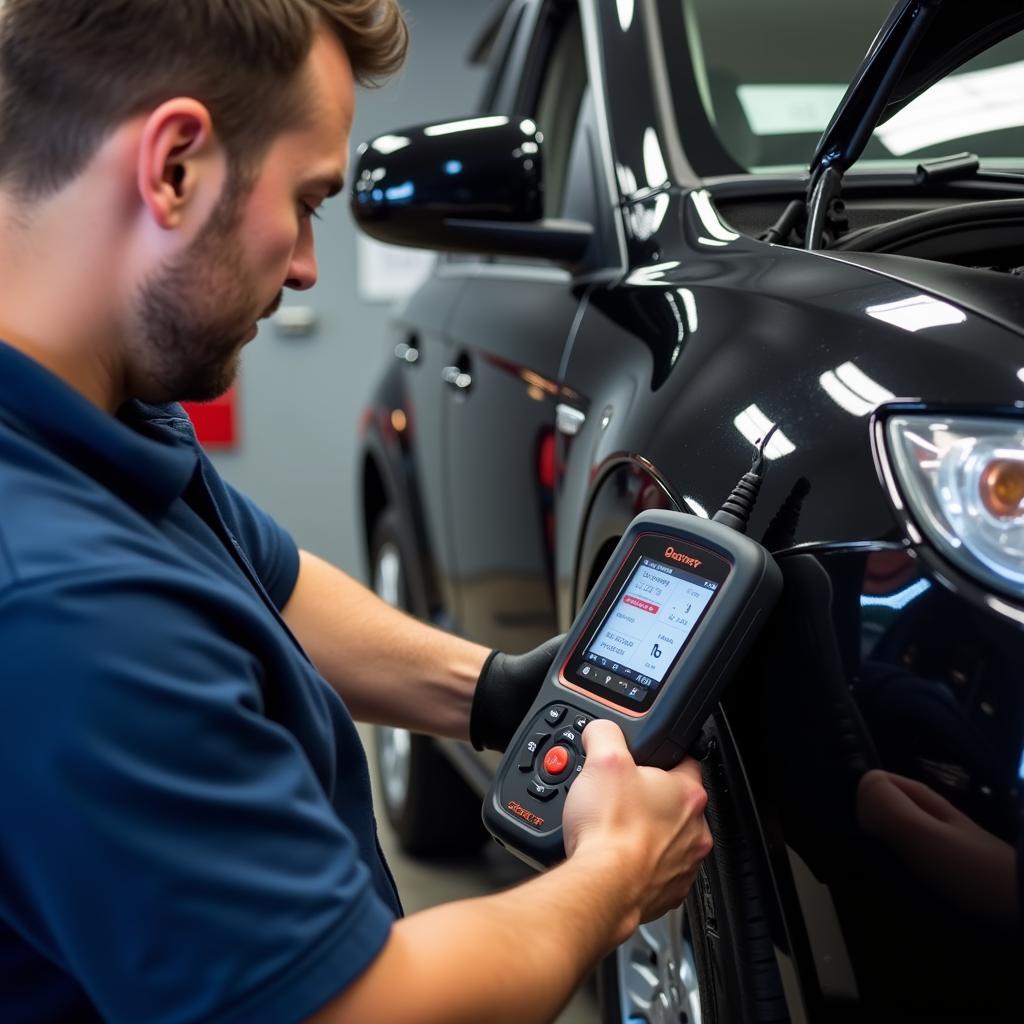Understanding and diagnosing engine management issues is crucial for maintaining your vehicle’s performance and longevity. Whether you’re a seasoned mechanic or a car enthusiast looking to delve into DIY repairs, having the right knowledge and tools for torque engine management diagnostics is essential. This guide explores the intricacies of torque engine management, common problems, and the tools available to help you achieve accurate diagnoses and effective repairs.
Understanding Torque Engine Management Systems
Modern vehicles rely on sophisticated engine management systems, often referred to as Engine Control Units (ECUs), to optimize engine performance, fuel efficiency, and emissions. These systems utilize a network of sensors to monitor various parameters, including:
- Air Intake: Mass Air Flow (MAF) sensors measure the amount of air entering the engine, while Manifold Absolute Pressure (MAP) sensors determine the pressure in the intake manifold.
- Fuel Delivery: Fuel injectors are responsible for delivering the precise amount of fuel to the combustion chamber, and their timing is meticulously controlled by the ECU.
- Ignition System: The ECU manages the ignition timing, ensuring the spark plugs ignite the air-fuel mixture at the optimal moment.
- Exhaust System: Oxygen sensors (O2 sensors) analyze the exhaust gases to determine the air-fuel ratio, allowing the ECU to make adjustments for optimal combustion.
The ECU uses complex algorithms to process the data received from these sensors, making real-time adjustments to optimize engine performance and adhere to emission standards.
Common Torque Engine Management Issues
When a problem arises within the engine management system, the ECU triggers a warning light on your dashboard, often the “Check Engine” light. Here are some common torque engine management issues that might trigger this warning:
- Faulty Oxygen Sensors: A malfunctioning oxygen sensor can disrupt the air-fuel ratio, leading to decreased fuel efficiency and increased emissions.
- Mass Air Flow Sensor Problems: A dirty or faulty MAF sensor can provide inaccurate air flow readings, causing issues with acceleration, idling, and overall engine performance.
- Spark Plug Issues: Worn or fouled spark plugs can lead to misfires, reducing engine power and fuel efficiency.
- Catalytic Converter Problems: The catalytic converter is responsible for reducing harmful emissions, and a clogged or failing converter can severely impact engine performance.
The Power of Torque Engine Management Diagnostics and Tools
Diagnosing torque engine management issues often requires specialized tools that can communicate with your vehicle’s ECU. These tools, often referred to as OBD2 scanners, can read and interpret diagnostic trouble codes (DTCs) stored in the ECU’s memory. DTCs provide valuable insights into the nature of the problem, guiding mechanics and DIY enthusiasts toward potential solutions.
Choosing the Right Torque Engine Management Diagnostic Tool
There’s a wide range of diagnostic tools available, from basic code readers to advanced professional-grade scanners. When selecting a tool, consider your needs and budget. Here are some key factors to keep in mind:
- Functionality: Determine the level of detail and functionality you require. Basic code readers can retrieve and clear DTCs, while advanced scanners offer live data streaming, bi-directional control, and specialized functions.
- Vehicle Compatibility: Ensure the tool is compatible with your vehicle’s make, model, and year.
- User Interface: Opt for a tool with an intuitive and user-friendly interface, especially if you’re new to automotive diagnostics.
 Choosing the Right Diagnostic Tool
Choosing the Right Diagnostic Tool
Downloadable Torque Engine Management Software
In addition to dedicated hardware scanners, there’s a growing market for downloadable software that transforms your smartphone, tablet, or computer into a powerful diagnostic tool. Torque Pro is a popular example, allowing you to:
- Read and Clear DTCs: Access and interpret diagnostic trouble codes to understand the root cause of engine problems.
- View Live Data: Monitor real-time sensor data, such as engine RPM, coolant temperature, and oxygen sensor readings.
- Customize Dashboards: Create personalized dashboards to display specific parameters and metrics you want to track.
- Record and Log Data: Capture and log data during test drives to diagnose intermittent issues or monitor performance over time.
 Torque Pro App Interface
Torque Pro App Interface
Leveraging Torque Engine Management Diagnostics for DIY Repairs
While some engine management issues require professional attention, many can be addressed by DIY enthusiasts equipped with the right knowledge and tools. Here’s how torque engine management diagnostics can empower your DIY repairs:
- Identify the Problem: Use a diagnostic tool or software to retrieve and interpret DTCs, providing a starting point for your troubleshooting process.
- Research and Consult Resources: Online forums, repair manuals, and video tutorials offer a wealth of information on specific DTCs and potential solutions.
- Perform Basic Checks: Before delving into complex repairs, check for loose connections, damaged wiring, or simple fixes like replacing a faulty sensor.
- Proceed with Caution: While DIY repairs can be rewarding, it’s crucial to approach them with caution. If you’re unsure about a particular repair or diagnosis, consult a qualified mechanic.
Conclusion: Taking Control of Your Engine’s Health
Torque engine management diagnostics and tools provide invaluable insights into your vehicle’s health, empowering you to address issues promptly and effectively. Whether you’re a seasoned mechanic or a DIY enthusiast, having the right tools and knowledge at your disposal can save you time, money, and frustration in the long run.
Need expert assistance with your torque engine management diagnostics? Contact ScanToolUS today at +1 (641) 206-8880 or visit our office at 1615 S Laramie Ave, Cicero, IL 60804, USA. Our team of experienced professionals can provide guidance, support, and the tools you need to keep your vehicle running smoothly.


Pingback: Unlocking the Secrets of Your Car: A Guide to CAN Bus Diagnostic Tools - Car Scan Tool